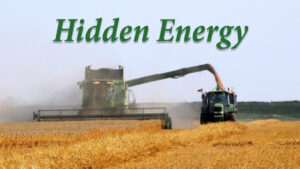 2019 McBride Distinguished Lecturer in History
2019 McBride Distinguished Lecturer in History
* Please note the change in venue to Hill Auditorium, Barrows Hall.
Geoff Cunfer, Professor of History, University of Saskatchewan
For most of human history, farmers were society’s crucial energy suppliers, fueling human labor and animal transportation. Firewood and charcoal from farms cooked food, heated homes, and fired industry. Agriculture set the limits of economic productivity. Fossil fuels became important only after 1700. This lecture explores how farmers historically managed energy flows, maintained soil nutrients, and manipulated natural processes for human goals, using methods from sustainability science to understand environmental history. How sustainable were past farm systems? Does history hold models for long-term agricultural sustainability?
Geoff Cunfer is Professor of History at the University of Saskatchewan. He is the founding director of the Historical Geographic Information Systems Lab, the first historical GIS lab in North America, which now has five faculty members, many graduate and undergraduate students, and post-docs and research affiliates from many countries. Originally an environmental historian who focused on agriculture in the semi-arid plains of the United States and Canada, Geoff moved into more deeply interdisciplinary work as leader of a six-year project studying the history of sustainable agriculture in Canada, the U.S., Spain, Austria, Cuba, and Colombia. This project, funded by Canada’s Social Sciences and Humanities Research Council, focused on material and energy throughputs in farm systems and the social ecology of old and new world agricultural societies.
Geoff’s first book, On the Great Plains: Agriculture and Environment (Texas A&M Press 2005), was awarded book prizes by the Social Science History Association and the Agricultural History Society. It challenged Donald Worster’s famous thesis that the Dust Bowl of the 1930s was caused by farmers over-plowing the plains. He has edited two books, on women’s lives on the Texas High Plains and the environmental history of bison; and he is co-authoring a stream of articles issuing from the sustainability project.

